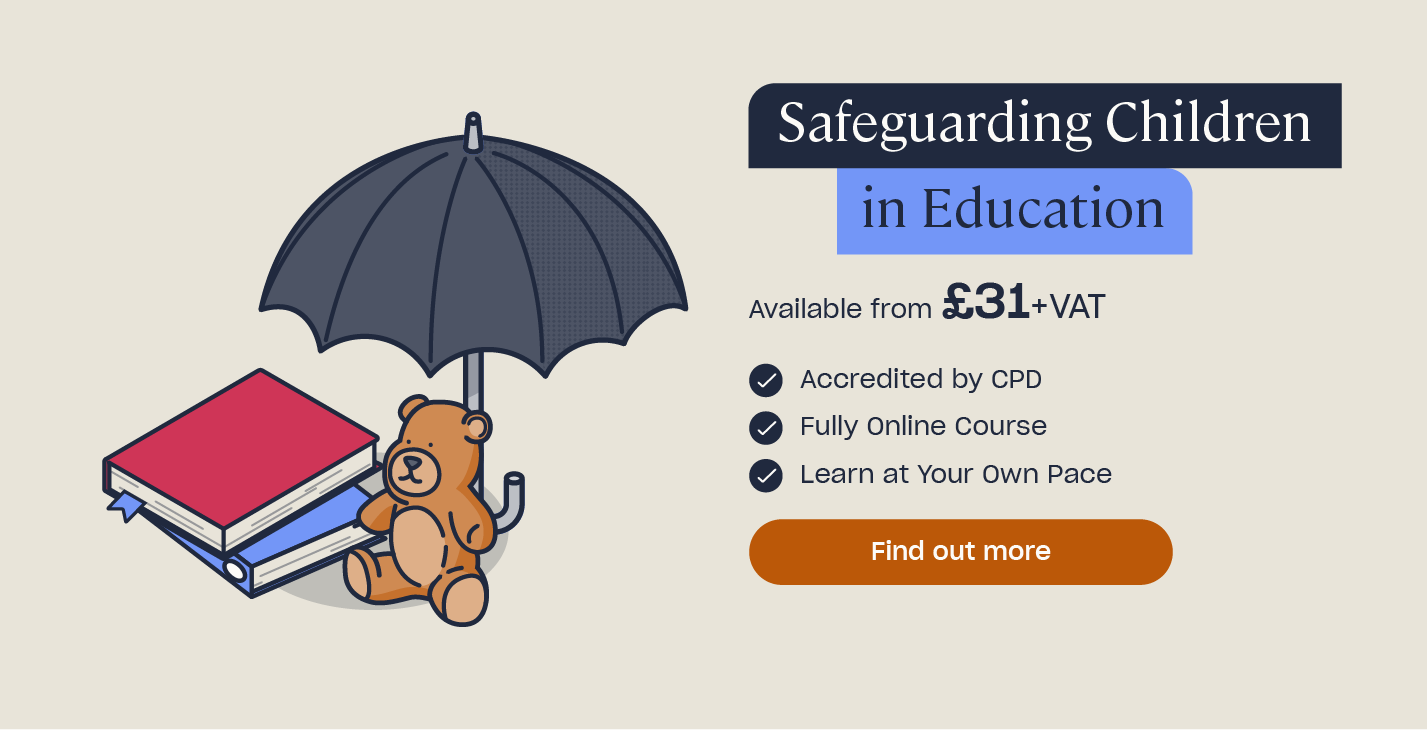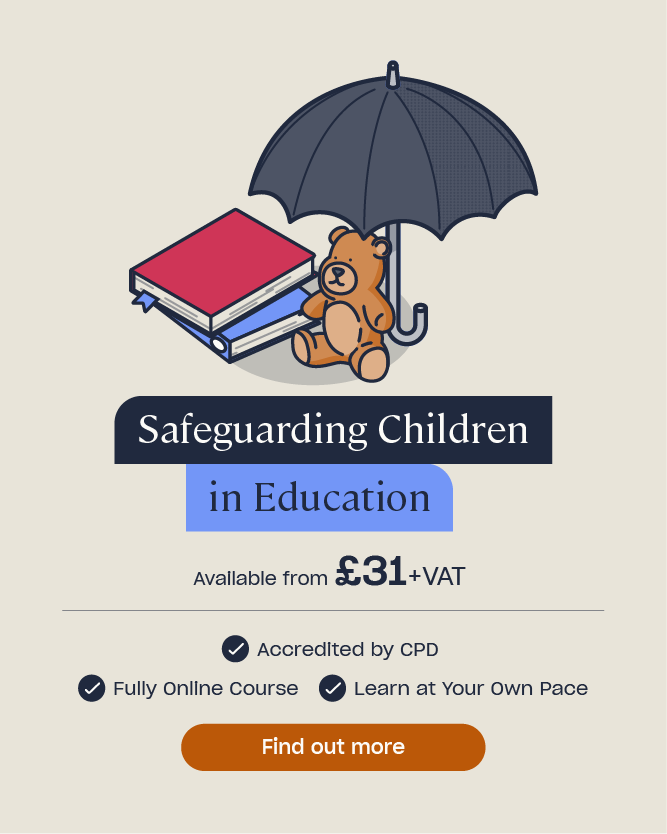Whistleblowing in Schools: Policy and Procedure
All schools should be a safe place for students to learn and thrive, and for staff to grow and develop in their career. To make this a reality, it’s essential that any malpractice or wrongdoing can be reported and addressed with confidence via whistleblowing.
Unfortunately, it’s common for whistleblowing in a school workplace to be dismissed and ignored, or even to result in victimisation or dismissal for the individual raising the issue. This inevitably causes school staff to be wary about raising their concerns. Thus, it’s essential that schools have a thorough whistleblowing policy and procedure in place to ensure that no misdemeanours go unreported and unhandled.
In this article, we will detail what exactly whistleblowing is, why it’s so important in a school environment, answer common questions about whistleblowing and the legality surrounding it, as well as giving expert advice on how to create effective policies and procedures surrounding whistleblowing in your school.
What is Whistleblowing in Schools?
Whistleblowing is a term used to describe any circumstances by which someone reports wrongdoing at work to the relevant authorities in order to protect other colleagues, the general public, or students if it’s within a school environment. The concern can relate to something that has happened, is happening, or that the individual fears may happen in the future. In general, it involves a worker seeking to expose malpractice or unethical activities within their organisation.
It’s important to specify, however, that not all complaints are regarded as whistleblowing. To be categorised as whistleblowing, an issue must be of public interest, not just a personal grievance. Whistleblowing is about ‘putting something right’ which will benefit others, rather than a concern regarding your individual interest.
Below, you can find some instances of wrongdoing which it would be appropriate and advised to blow the whistle about.
Many of these instances of wrongdoing pose a serious threat to the safety of children within a school environment and thus neglect school safeguarding obligations. To learn more about what your safeguarding duties are as an educator, read our article on Safeguarding Responsibilities of School Staff.

Examples of Whistleblowing in Schools
Breaking the Law
Any form of criminal offence, such as fraud or corruption for example, conducted within a school environment should be reported to the relevant authorities. Any activity that breaks the law is likely to threaten the safety of pupils or staff, or at the very least damage the reputation of the establishment. Thus, it’s in the public interest that criminal activity does not go unreported.
Covering Up an Unlawful Act
Similarly to reporting any activity which breaks the law, it is also appropriate to inform authorities of any accomplices or accessories to a crime. Having knowledge of an illegal activity and not reporting it is an offence in itself, so it’s advised to blow the whistle on anyone who fits this description.
Neglecting Duties
Neglecting your duties in a school environment can have serious consequences and thus this is considered to be a wrongdoing severe enough to warrant whistleblowing. The neglect of duties may include poor supervision, the use of dangerous equipment, inadequate or damaging SEND support, or failing to provide a suitable education.
Maladministration
This form of wrongdoing involves any activity that results in a school not complying with the requirements for assessment and delivery of qualifications. It generally centres around examination and learner records, for example submitting incorrect test data, allowing students to use devices or textbooks during exams, tampering with student work, or changing assessment judgements.
Breaching Confidentiality
In an education environment, the rules around storing personal data are very strict. Thus, tampering with or sharing this data is a serious offence. Examples of wrongdoing in this category may include sending personal data to the wrong person, sharing sensitive medical records, unauthorised access to information and altering or deleting data files. The misuse of private data can cause major safeguarding issues as well as legal repercussions.
You can learn more about how to prevent any breaches of confidentiality within the education sector in our guide to Data Protection in Schools.
Why is Whistleblowing Important?
Whistleblowing is essential in schools because it helps to protect everyone – students, staff, parents, the board, and the wider community – from wrongdoings that could have wider consequences or cause public scandal.
Blowing the whistle helps to find mistakes and frauds so that they can be corrected as quickly as possible and the people involved in the wrongdoing can be apprehended. Furthermore, the knock-on effect of this is that colleagues and other people within the educational environment are less likely to conduct any form of malpractice as they are aware of the consequences.

In addition to the wider umbrella of preventing wrongdoing, there are several other benefits of whistleblowing in schools:
Minimises Costs and Risks
When misconducts are left unreported, they can not be resolved and thus pose various risks to the school such as:
- Legal prosecution.
- Reputational damage.
- Public scandal.
- Financial penalties.
These consequences can be extremely costly in terms of finances and the school’s image. Whistleblowing helps to minimise these costs and allows schools to manage their risks more quickly and effectively.
Allows Detailed Insight Into Issues
Whistleblowers usually have an insider’s perspective on the issues they’re reporting, and can therefore provide details and insights that an external source may not have access to. Whistleblowers may be the only ones with enough access to information to accurately report wrongdoings with evidence that allow the case to stand and eventually be resolved.
Creates an Open Working Culture
By encouraging whistleblowing, a school gains more trust from its employees as they know that any concerns will be taken seriously and that they are working in an ethical and safe environment. It is widely known that an open and honest working culture usually forms better working relationships and dedication, which in turn increases productivity.
Prevents Issues Escalating
One of the greatest benefits of whistleblowing in school is that it provides the opportunity to identify and deal with issues quickly, whilst they’re still in an early manageable stage. When information is shared directly to the relevant school team they can help resolve the issue immediately before it escalates, thus potentially preventing severe damage.
Want to Learn More?
Whistleblowing helps to support safeguarding in schools by protecting students from wrongdoing that may cause them harm. Our Safeguarding Children in Education course helps to support this by teaching learners to identify when abuse and neglect may be happening to a student and how to respond appropriately to concerns.
Whistleblowing Policy and Procedures
A school should establish a whistleblowing procedure to ensure that all members of staff are aware of the appropriate channels to raise a concern, provide reassurance that they can raise concerns without fear of reprisal, and, wherever possible, to ensure that the procedure is con?dential unless specified otherwise.
There are two types of whistleblowing:
- Internal – When an employee reports errors, corruption or malpractice within the organisation, using the company’s own whistleblowing solution to highlight the problem.
- External – When a person blows the whistle via external sources, such as the press, authorities or on social media. This is usually because they have little faith in their own organisation, or because they have previously tried to blow the whistle internally without seeing any changes.
Having a thorough whistleblowing policy and procedure helps to encourage internal, rather than external, whistleblowing, which is preferred as it means problems can be solved easily and smoothly within the organisation without involving external parties who may create a public spectacle.
School Whistleblowing Policy
A written school whistleblowing policy aims to provide avenues for individuals to raise concerns and receive feedback on any action taken, ensures that whistleblowers receive a response to their concerns and that they are aware of how to pursue them if they are not satisfied, and reassures whistleblowers that they will be protected from possible reprisals or
victimisation for raising an issue.
A comprehensive school whistleblowing policy should include the following sections:
How to Raise a Concern
This section should detail a list of potential whistleblowing scenarios and outline who the whistleblower should report to if they identify one of these issues. This should include names and contact details of all relevant school authority figures.
Furthermore, this section of the policy should describe the school’s preferred method of raising a concern, for example a verbal or written complaint, and what should be included in the whistleblower’s report. Often, this will include the background and history of the concern along with names, dates, relevant places and the reasons for the concern.
Investigating a Disclosure
It is important to outline in a whistleblowing policy how the school will respond to concerns raised. This may include a deadline for when the school promises to acknowledge the complaint by, for example within 3 days.
Understandably, the action taken may vary depending on the complaint and this should be stated within the policy along with a list of responses that may be taken under various circumstances.
Confidentiality Agreement
Confidentiality can be complicated in the case of whistleblowing, but a good policy should contain a section explaining that all concerns will be treated with confidence and that where possible the identity of the whistleblower will not be revealed if that is their wish. It should also state, however, that in some scenarios it may not be possible to keep the whistleblower’s identity disclosed in order to resolve the situation.
Learn more about what confidentiality in childcare is, why it’s important and confidentiality policy in childcare in our article: Confidentiality in Childcare.
Safeguards
This section of a whistleblowing policy serves the purpose of acknowledging that the decision to speak up about an issue can be a difficult one. It should include written reassurance that there will be no reprisals for speaking up against malpractice or wrongdoing within the school, and that any harassment or victimisation will not be tolerated. Furthermore, it is advisable to detail methods of support that will be available in the case of any difficulties experienced as a result of raising a concern.
In addition to a whistleblowing policy, it’s advised that all schools have a comprehensive safeguarding policy too. You can find an example template of one of these created by our education experts in our article on Creating a Safeguarding Policy.

How to Whistleblow to Ofsted
Although internal whistleblowing is often preferred, it is also possible for an individual to inform Ofsted of any concerns they have regarding activity within their school. Ofsted can act on any relevant information provided to them and are able to advise on what actions they may take, providing the issue relates to a child that may be at risk of harm, a failure in safeguarding practice, concerns that children aren’t receiving the right quality of care, or that regulatory requirements aren’t being met.
Although a school should have a whistleblowing policy to help protect their employees, an individual may choose to blow the whistle to Ofsted if they feel their organisation is likely to ignore the issue or fail to take action.
When whistleblowing to Ofsted, you will be asked the following questions:
- Do you believe that a child is at immediate risk of harm?
- Does the matter fall within the services that Ofsted inspects and regulates?
- Have you raised the issue with your employer or any other organisation?
- Can you provide further information?
- If you believe your employer has failed to act appropriately, what do you think should be done?
Following this, a concern will be reviewed by Ofsted, who may choose to refer the issue to a child protection team, bring forward their next inspection, or undertake a compliance visit.
You can whistleblow to Ofsted by:
- Telephone: Whistleblowing Hotline (0300 1233155)
- Email: whistleblowing@ofsted.gov.uk
- Post: WBHL, Ofsted, Piccadilly Gate, Store Street, Manchester, M1 2WD.
If you would like further support in identifying whether a scenario is likely to place a child at risk of harm, you can learn more about safeguarding issues along with examples of these in our Safeguarding Scenarios and Answers for Education article.
Are Whistleblowers Protected by Law?
Whistleblowing can be a scary thing to do so it helps to be certain on where you stand legally to provide confidence that your actions won’t face unjust repercussions.
The Public Interest Disclosure Act 1998 (PIDA), an amendment to the Employment Rights Act 1996, protects whistleblowers by law, preventing unfair dismissal or any detriment from their employer that arises from the worker making a protected disclosure.

To receive this legal protection, a whistleblower must:
- Be a ‘worker’ for the organisation about which they are whistleblowing.
- Reasonably believe they are acting in the public interest.
- Whistleblow to either the appropriate people within their organisation or to a relevant third party, such as one that inspects or regulates the activity of that organisation.
Although most workers are protected under this law, it is important to note that this does not include self-employed individuals or volunteers.
Whistleblowing is an essential and effective way for schools to identify any wrongdoing within their organisation. Despite its benefits, however, it can be daunting for an individual to blow the whistle due to fear of facing harassment or even dismissal for doing so. This is why it’s so important for a school to have a thorough whistleblowing policy and procedure to show encouragement of speaking up against wrongdoing and to protect those who have the confidence to do so.
Further Resources:
- Safeguarding Responsibilities of School Staff
- Creating a Safeguarding Policy – Example Template for Schools
- Safeguarding Scenarios and Answers for Education
- Data Protection in Schools – Guidance for the Education Sector











